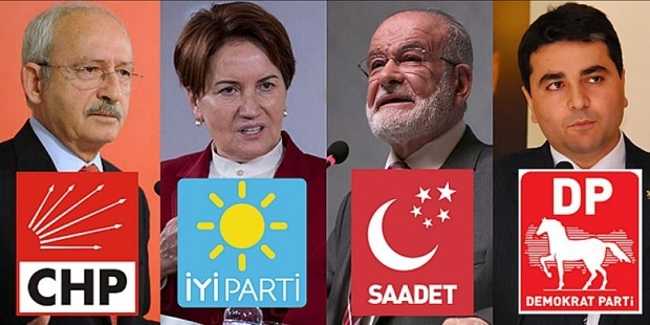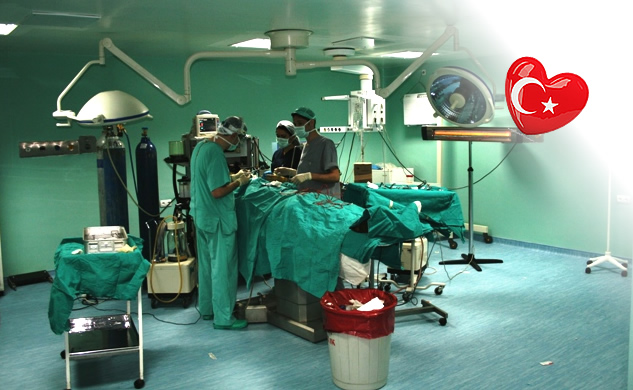Is CHP Becoming More Social and Democratic?
CHP (Republican People’s Party) has gone through some major events recently – starting with resignation of Deniz BAYKAL, the former chief of the part upon a cassette scandal.
Kemal KILIÇDAROĞLU the newcomer was a big hope for Turkish citizens not approving of the practices of AKP (currently in power) and people (wanted to) believe KILIÇDAROĞLU with the new wind he had well deserved till then would show a good enough performance to overcome the almost unbeatable influence of prime minister Erdoğan over a considerable majority of Turkish citizens – mostly not very well educated.
In time however the newcomer CHP leader has not shown the expected high performance in some aspects and especially owing to the poor support provided by his staff. Still, the crowds against the ERDOĞAN government have not lost hopes that K.OĞLU will make up for his initial low performance and stick to his image of ALTERNATIVE for the AKP chief – the person to take Erdoğan’s chair, in the future.
Below article looks at the subject through a positive and constructive point of view and claims CHP (in spite of big political mistakes incurred due to unclever and inexperienced behavoir and approach of some members) is on the right track and the way to evolution.
Is CHP Becoming More Social and Democratic?
Among so many other concrete projects launched by the Republican People’s Party, or CHP, if you ask me, I would not hesitate highlighting the one on the civil society as the most important and striking. Prepared by a team led by renowned sociologist Professor Sencer Ayata, deputy leader of the CHP, the importance of the report could be cited for two main reasons:
First, it analyzes the current state of the civil society and depicts the bureaucratic, philosophical and practical obstacles before its improvement. Secondly, it underlines how the CHP wants to transform itself as a genuine social democrat party, distancing itself from its traditional allies, i.e. the army, high bureaucracy and the establishment itself.
“The CHP is the party of the people and for the people. It embraces endorsing the social state nature, placing free human in its center,” said Kemal Kılıçdaroğlu, the party leader, at a meeting he held Monday for the promotion of the civil society report. Details of the report have already been published by the Hürriyet Daily News & Economic Review in recent days. However, in this column, we will try to make the motives behind this report more explicit.
The party brass is very much aware that the pro-army stance of the party has damaged the party’s image in recent years, at a moment when demands for a more democratic, more civilian Turkey were mounting in the country especially by the youth, women and urbanized segments of the society. Partly because of the European Union accession process led by the government for the last eight years, the greater part of this “cake” was capitalized by the Justice and Development Party, or AKP.
To the contrary, the CHP’s continuing silence on the military’s intervention in the presidential elections in 2007, known by some as the midnight e-memorandum, still serves as an important argument for the party’s political rivals.
Having seen how such deficiencies worked for the disadvantage of the party’s performance in attracting votes, the new leadership of the party under Kılıçdaroğlu made this very crucial decision to move away from earlier alliances.
This move also suits the global trend for more democratic regimes becoming obvious nowadays especially in the Arab world. Kılıçdaroğlu’s successive visits to important European capital over the last few weeks and meetings with high-ranking European politicians have also helped the party end its isolation from like-minded European counterparts. That in fact resulted in the party’s better reading these global trends while the CHP brass could find opportunity to express their views on what’s going on in Turkey.
What does CHP say?
Over the last four weeks, the CHP has outlined four important reports: the civil society report; family insurance; plus for the young, and the agriculture report. Though prepared in a semi-academic manner, these reports are highly political and represent the party’s solutions. Among them, family insurance has become the most remarkable as we have heard so many government officials touring the television channels to explain why this project could not be implemented. Besides economic reasoning to disprove the feasibility of the project, we have also heard Prime Minister Recep Tayyip Erdoğan saying: “You have dishonored the family institution. What family, what insurance are you talking about?” while slamming the party’s recent pledge. For many, even this mood of Erdoğan shows how the family insurance has disturbed the ruling party.
Another finding of the CHP represents the Justice and Development Party, or AKP, as the source of growing authoritarianism in Turkey. “This trend of [the AKP’s] authoritarianism will sure start to disturb some groups other [than the liberals],” Ayata said. “The priority is to limit the government’s power through democratic means.”
This authoritarianism was bluntly experienced during last year’s referendum campaign when Prime Minister Erdoğan urged the civil society to choose their sides in order to not be eliminated. Accompanied with Ergenekon detentions and searches of journalists’ and other prominent personalities’ houses, this trend of authoritarianism has fueled fear and concern especially among the intellectuals, journalists and etc.
This is why the CHP’s initiative to strengthen the civil society is very much important.





